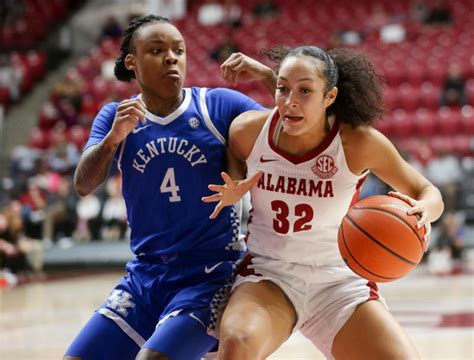NCAA basketball rankings top 25 predictions attempt to forecast the top 25 teams in the NCAA Division I men’s basketball tournament. These predictions are made using a variety of factors, including team performance, player talent, and schedule strength. Top 25 predictions are often updated throughout the season as new information becomes available.
NCAA basketball rankings top 25 predictions are important for several reasons. First, they can help fans identify the best teams in the country and track their progress throughout the season. Second, they can help bettors make informed decisions about which teams to wager on. Third, they can provide a historical record of the best teams in college basketball.
Several different methods can be used to make NCAA basketball rankings top 25 predictions. Some popular methods include the RPI (Ratings Percentage Index), the BPI (Basketball Power Index), and the NET (NCAA Evaluation Tool). Each method uses a different formula to rank teams, so it is important to consider all three rankings when making predictions.
NCAA Basketball Rankings Top 25 Predictions
NCAA basketball rankings top 25 predictions are an important part of the college basketball season. They help fans identify the best teams in the country and track their progress throughout the season. They can also help bettors make informed decisions about which teams to wager on. Several different methods can be used to make NCAA basketball rankings top 25 predictions, but the most popular methods include the RPI (Ratings Percentage Index), the BPI (Basketball Power Index), and the NET (NCAA Evaluation Tool).
- Team performance: How well a team has played against other teams, especially against other top teams.
- Player talent: The quality of a team’s players, especially its star players.
- Schedule strength: How difficult a team’s schedule has been.
- Recent results: How a team has played in its most recent games.
- Injuries: Which players are injured and how long they will be out.
- Coaching: The quality of a team’s coach.
- Home-court advantage: How well a team plays at home.
- Luck: Sometimes, teams get lucky and win games they shouldn’t. Other times, they are unlucky and lose games they should have won.
All of these factors can play a role in determining a team’s ranking. However, it is important to remember that rankings are just predictions. They are not always accurate, and they can change significantly throughout the season. The best way to track the progress of your favorite teams is to watch them play and follow the latest news and analysis.
Team performance
Team performance is one of the most important factors in determining a team’s ranking in the NCAA basketball top 25. A team’s record against other top teams is a good indicator of how well they will perform in the tournament. For example, a team that has a winning record against other top teams is more likely to be ranked higher than a team that has a losing record.
- Strength of schedule: The strength of a team’s schedule is also an important factor in determining their ranking. A team that has played a tough schedule will be ranked higher than a team that has played a weak schedule, even if the two teams have the same record. For example, a team that has played a schedule of top 25 teams will be ranked higher than a team that has played a schedule of lower-ranked teams, even if the two teams have the same record.
- Recent results: A team’s recent results can also affect their ranking. A team that has won its last several games will be ranked higher than a team that has lost its last several games, even if the two teams have the same overall record. For example, a team that has won its last five games will be ranked higher than a team that has lost its last five games, even if the two teams have the same overall record.
Team performance is a complex factor that can be difficult to measure. However, it is one of the most important factors in determining a team’s ranking in the NCAA basketball top 25. By considering a team’s record against other top teams, the strength of their schedule, and their recent results, we can get a good idea of how well they will perform in the tournament.
Player talent
Player talent is one of the most important factors in determining a team’s success in college basketball. A team with talented players is more likely to win games, and therefore more likely to be ranked in the top 25. There are several reasons why player talent is so important.
First, talented players are more likely to make big plays in. They can hit clutch shots, make key, and control the tempo of the game. Second, talented players are more likely to be consistent. They can perform at a high level night after night, which is essential for success in college basketball. Third, talented players can make their teammates better. They can create scoring opportunities for their teammates, and they can take pressure off of their teammates on defense.
There are many examples of how player talent has impacted NCAA basketball rankings top 25 predictions. For example, the Duke Blue Devils were ranked #1 in the preseason AP Poll in 2019-2020. Duke had a talented roster led by Zion Williamson, RJ Barrett, and Cam Reddish. The Blue Devils lived up to the hype and finished the season with a 32-6 record and a trip to the Elite Eight. Another example is the Virginia Cavaliers. Virginia was ranked #5 in the preseason AP Poll in 2018-2019. Virginia had a talented roster led by De’Andre Hunter, Kyle Guy, and Ty Jerome. The Cavaliers won the NCAA championship that season.
Understanding the connection between player talent and NCAA basketball rankings top 25 predictions is important for several reasons. First, it can help fans identify which teams are likely to be successful. Second, it can help bettors make informed decisions about which teams to wager on. Third, it can help coaches and players understand what is needed to be successful in college basketball.
Schedule strength
Schedule strength is an important factor in NCAA basketball rankings top 25 predictions because it provides a measure of how difficult a team’s schedule has been. A team that has played a tough schedule will be ranked higher than a team that has played a weak schedule, even if the two teams have the same record. This is because a team that has played a tough schedule is more likely to be battle-tested and prepared for the challenges of the NCAA Tournament.
There are several reasons why schedule strength is important. First, a team that has played a tough schedule is more likely to be exposed to different styles of play. This can help the team to develop a more well-rounded game and to be better prepared for the different teams they will face in the NCAA Tournament. Second, a team that has played a tough schedule is more likely to be mentally tough. They will be used to playing in close games and to facing adversity. This can be a valuable asset in the NCAA Tournament, where every game is a must-win.
There are many examples of how schedule strength has impacted NCAA basketball rankings top 25 predictions. For example, in 2019, the Duke Blue Devils were ranked #1 in the preseason AP Poll. Duke had a talented roster led by Zion Williamson, RJ Barrett, and Cam Reddish. However, Duke’s schedule was not as strong as some other top teams. As a result, Duke was ranked lower than some other teams in the top 25, such as the Kansas Jayhawks and the Gonzaga Bulldogs. Ultimately, Duke finished the season with a 32-6 record and a trip to the Elite Eight. However, they were upset by the Michigan State Spartans in the Elite Eight. This shows that schedule strength can be a factor in determining a team’s success in the NCAA Tournament.
Understanding the connection between schedule strength and NCAA basketball rankings top 25 predictions is important for several reasons. First, it can help fans identify which teams are likely to be successful. Second, it can help bettors make informed decisions about which teams to wager on. Third, it can help coaches and players understand what is needed to be successful in college basketball.
Recent results
Recent results are an important factor in NCAA basketball rankings top 25 predictions because they provide a measure of a team’s current form. A team that has won its last several games is more likely to be ranked higher than a team that has lost its last several games, even if the two teams have the same overall record. This is because a team that is playing well is more likely to be confident and to have momentum on its side.
- Momentum: A team that is on a winning streak is more likely to have momentum on its side. This can be a valuable asset in the NCAA Tournament, where every game is a must-win. For example, in 2019, the Auburn Tigers won their last 12 regular season games and their first two NCAA Tournament games. This momentum helped them to reach the Final Four, where they lost to the Virginia Cavaliers.
- Confidence: A team that is playing well is more likely to be confident in its abilities. This confidence can help the team to perform at a higher level. For example, in 2018, the Villanova Wildcats won their last seven regular season games and their first two NCAA Tournament games. This confidence helped them to win the NCAA championship.
- Recent opponents: The quality of a team’s recent opponents can also affect its ranking. A team that has played a tough schedule will be ranked higher than a team that has played a weak schedule, even if the two teams have the same record. For example, in 2017, the North Carolina Tar Heels had a strong schedule and were ranked #1 in the preseason AP Poll. However, they lost their first two games of the season, which dropped them out of the top 25. The Tar Heels eventually finished the season with a 27-11 record and a trip to the Sweet 16.
Understanding the connection between recent results and NCAA basketball rankings top 25 predictions is important for several reasons. First, it can help fans identify which teams are likely to be successful. Second, it can help bettors make informed decisions about which teams to wager on. Third, it can help coaches and players understand what is needed to be successful in college basketball.
Injuries
Injuries are a major factor in NCAA basketball rankings top 25 predictions. A team that loses a key player to injury can see its ranking drop significantly. This is because injuries can disrupt a team’s chemistry and make it difficult to win games. For example, in 2019, the Duke Blue Devils were ranked #1 in the preseason AP Poll. However, they lost Zion Williamson to a knee injury in the first game of the season. Duke’s ranking dropped to #4 in the next AP Poll, and they eventually finished the season with a 32-6 record and a trip to the Elite Eight. Another example is the Kentucky Wildcats. Kentucky was ranked #2 in the preseason AP Poll in 2015. However, they lost Karl-Anthony Towns to a knee injury in the first game of the season. Kentucky’s ranking dropped to #19 in the next AP Poll, and they eventually finished the season with a 27-9 record and a trip to the Final Four.
The severity of an injury can also affect a team’s ranking. A short-term injury to a key player may not have a major impact on a team’s ranking. However, a long-term injury to a key player can have a significant impact on a team’s ranking. For example, in 2018, the Kansas Jayhawks were ranked #1 in the preseason AP Poll. However, they lost Udoka Azubuike to a knee injury in the first game of the season. Azubuike was expected to be out for the season, and Kansas’ ranking dropped to #4 in the next AP Poll. The Jayhawks eventually finished the season with a 31-5 record and a trip to the Final Four.
Understanding the connection between injuries and NCAA basketball rankings top 25 predictions is important for several reasons. First, it can help fans identify which teams are likely to be successful. Second, it can help bettors make informed decisions about which teams to wager on. Third, it can help coaches and players understand the importance of staying healthy.
Coaching
In the realm of college basketball, the influence of a skilled coach on a team’s success is undeniable. A top-notch coach can elevate a team’s performance, shape their strategic approach, and guide them towards achieving their full potential. This is why the quality of a team’s coach is a crucial factor in NCAA basketball rankings top 25 predictions.
- Leadership and Motivation: An exceptional coach possesses the ability to inspire and motivate their players, fostering a positive and driven team culture. They set clear expectations, provide constructive feedback, and create an environment where players feel valued and supported. This leadership translates into enhanced performance on the court, as players are more likely to push themselves and execute plays effectively.
- Strategic Planning: A skilled coach has a deep understanding of the game and can develop innovative strategies that exploit their team’s strengths and minimize their weaknesses. They study opponents, identify patterns, and devise game plans that maximize their chances of victory. By outsmarting their adversaries, these coaches give their teams a competitive edge.
- Player Development: Great coaches recognize the potential in each player and invest in their growth. They provide personalized training, offer guidance on and off the court, and help players refine their skills and abilities. This commitment to player development pays dividends in the long run, as players reach their full potential and contribute significantly to the team’s success.
- Adaptability and Resilience: The best coaches are able to adapt their strategies and tactics based on the evolving dynamics of the game. They anticipate adjustments from opponents, make quick decisions, and find solutions to unforeseen challenges. This adaptability and resilience are essential in high-pressure situations, such as close games or tournament play, where the ability to respond effectively can make all the difference.
In conclusion, the quality of a team’s coach plays a pivotal role in determining their ranking among the NCAA’s top 25 teams. By providing leadership, developing strategic plans, investing in player development, and demonstrating adaptability and resilience, exceptional coaches empower their teams to perform at their highest level and achieve remarkable success on the court.
Home-court advantage
In the competitive landscape of NCAA basketball, home-court advantage emerges as a significant factor influencing team performance and NCAA basketball rankings top 25 predictions. This advantage encompasses several facets that contribute to a team’s success when playing in their home arena.
- Crowd Support: Home crowds provide an unparalleled level of support, creating an intimidating atmosphere for visiting teams. The roar of the crowd, the energy of the fans, and the familiarity of the surroundings can boost the home team’s confidence and motivate them to perform at their best.
- Comfort and Familiarity: Teams are accustomed to their home court’s dimensions, lighting, and playing surface. This familiarity allows them to execute plays more effectively, anticipate opponents’ moves, and feel more comfortable taking risks.
- Reduced Travel Fatigue: Home teams avoid the physical and mental fatigue associated with traveling, allowing them to conserve energy and focus on the game. This reduced travel burden provides a competitive edge, especially during demanding stretches of the season.
- Scheduling Advantage: Teams often schedule more favorable matchups at home, providing an opportunity to build momentum and improve their overall record. This strategic scheduling can impact their ranking and seeding in the NCAA Tournament.
The combination of these factors contributes to a significant home-court advantage, which has a tangible impact on NCAA basketball rankings top 25 predictions. Teams with a strong home-court record are more likely to be ranked higher and receive favorable seeding in the NCAA Tournament. Understanding the significance of home-court advantage is crucial for accurately predicting team performance and shaping the NCAA basketball landscape.
Luck
In the realm of NCAA basketball, luck plays a subtle yet undeniable role in shaping the outcome of games and influencing NCAA basketball rankings top 25 predictions. While skill, talent, and strategy are paramount, the element of luck can occasionally intervene, affecting a team’s performance and trajectory.
One aspect where luck manifests is in the occurrence of unpredictable events during a game. A fortuitous bounce of the ball, an errant shot that finds its way through the hoop, or a timely turnover can significantly impact the outcome. These seemingly random occurrences can swing momentum in favor of one team, leading to an unexpected victory or a disheartening defeat.
Furthermore, luck can manifest in the form of injuries. A key player sustaining an injury at a crucial moment can drastically alter the balance of power on the court. The absence of a star player can disrupt team chemistry, diminish offensive or defensive capabilities, and ultimately affect the team’s overall performance and ranking.
The impact of luck on NCAA basketball rankings top 25 predictions cannot be overstated. A team that experiences a string of fortunate events or avoids major injuries may find itself climbing the rankings, while a team plagued by misfortune may see its ranking decline. This element of unpredictability adds an intriguing layer to the sport, as even the most well-prepared teams can be susceptible to the whims of luck.
In conclusion, while skill and strategy remain the cornerstones of success in NCAA basketball, luck serves as an ever-present factor that can influence the outcome of games and shape the top 25 rankings. Understanding the role of luck and its potential impact is crucial for making informed predictions and appreciating the dynamic nature of the sport.
FAQs on NCAA Basketball Rankings Top 25 Predictions
NCAA basketball rankings top 25 predictions are a subject of great interest and discussion among fans, analysts, and bettors. To provide clarity and address common questions, we present this FAQ section.
Question 1: What factors are considered when making NCAA basketball rankings top 25 predictions?
Answer: Multiple factors are taken into account, including team performance, player talent, schedule strength, recent results, injuries, coaching, home-court advantage, and sometimes luck.
Question 2: How often are NCAA basketball rankings top 25 predictions updated?
Answer: Rankings are typically updated weekly, especially during the regular season, to reflect the latest team performances and other relevant factors.
Question 3: What is the importance of NCAA basketball rankings top 25 predictions?
Answer: These predictions help identify the strongest teams in the country, track their progress, and provide insights for fans, media, and bettors.
Question 4: How accurate are NCAA basketball rankings top 25 predictions?
Answer: While predictions aim to be as accurate as possible, they are not always precise. Rankings can change throughout the season due to various factors, including injuries, team performance fluctuations, and schedule changes.
Question 5: What are some common mistakes to avoid when making NCAA basketball rankings top 25 predictions?
Answer: Relying solely on past performance, overvaluing individual star players, and underestimating the impact of injuries are some common pitfalls to avoid.
Question 6: Where can I find reliable NCAA basketball rankings top 25 predictions?
Answer: Reputable sports media outlets, NCAA official websites, and specialized sports analysis platforms often provide well-informed predictions.
Summary: NCAA basketball rankings top 25 predictions are a valuable tool for understanding the competitive landscape of college basketball. By considering various factors and recognizing the potential for change, these predictions offer insights into team performance and can enhance the overall fan experience.
Transition: To delve deeper into the intricacies of NCAA basketball, let’s explore the next section, which focuses on the strategies employed by top-ranked teams to achieve success.
Tips for Making NCAA Basketball Rankings Top 25 Predictions
Accurately predicting the top 25 teams in NCAA basketball requires careful analysis and consideration of various factors. Here are several tips to enhance the reliability of your predictions:
Tip 1: Utilize Multiple Ranking Systems
Relying solely on one ranking system can lead to biased or incomplete insights. Utilize a combination of reputable ranking systems, such as the AP Poll, Coaches Poll, KenPom, and NET rankings, to gain a more comprehensive view of team performance.
Tip 2: Consider Schedule Strength
Evaluate the strength of each team’s schedule. Teams that have faced a challenging slate of opponents, including victories against highly ranked teams, should be ranked higher than those with weaker schedules. Strength of schedule provides context to a team’s record.
Tip 3: Analyze Team Performance Trends
Look beyond overall record and examine a team’s performance over time. Teams that are trending upwards, showing improvement and consistency, should be considered for higher rankings. Conversely, teams experiencing a decline in performance may be due for a drop in the rankings.
Tip 4: Account for Injuries and Suspensions
Injuries and suspensions can significantly impact a team’s performance. Monitor injury reports and consider the potential absence of key players when making predictions. Teams with significant injuries may experience a decline in ranking, while teams with healthy rosters may have an advantage.
Tip 5: Evaluate Coaching Changes
Coaching changes can bring about significant shifts in team dynamics and performance. Analyze the impact of new coaches and consider their track record, style of play, and ability to adapt to the team’s strengths and weaknesses.
Tip 6: Consider Home-Court Advantage
Home-court advantage is a real factor in college basketball. Teams that have a strong home record and a passionate fan base should be ranked higher than those with weaker home performances. Home-court advantage can provide an edge in close games and impact tournament seeding.
Summary: By incorporating these tips into your NCAA basketball rankings top 25 predictions, you can enhance the accuracy and reliability of your analysis. Remember to consider multiple ranking systems, schedule strength, team performance trends, injuries and suspensions, coaching changes, and home-court advantage.
Transition: Understanding these factors and making informed predictions allows you to engage more deeply with the excitement and strategy of NCAA basketball.
Conclusion
NCAA basketball rankings top 25 predictions provide valuable insights into the competitive landscape of college basketball. By considering factors such as team performance, player talent, schedule strength, recent results, injuries, coaching, home-court advantage, and luck, we can make informed predictions about which teams will succeed in the upcoming season.
These predictions are not only a source of entertainment for fans but also serve a practical purpose. They help identify strong teams, track their progress, and provide a basis for decision-making for bettors and tournament selection committees. Understanding the intricacies of these rankings enhances our appreciation for the sport and allows us to engage more deeply with its strategies and excitement.





